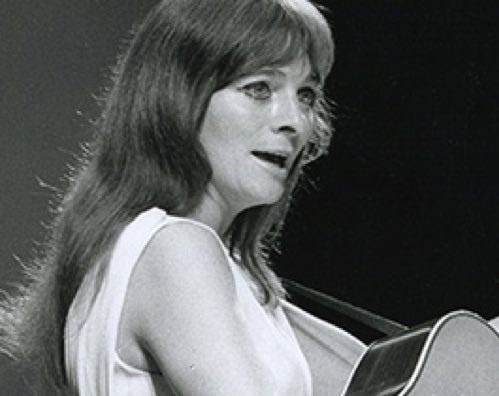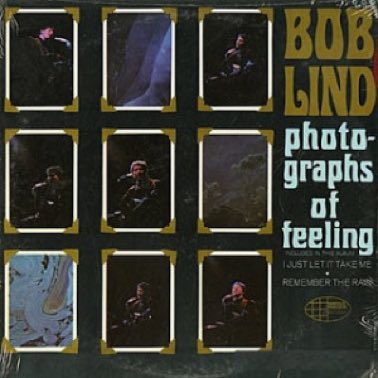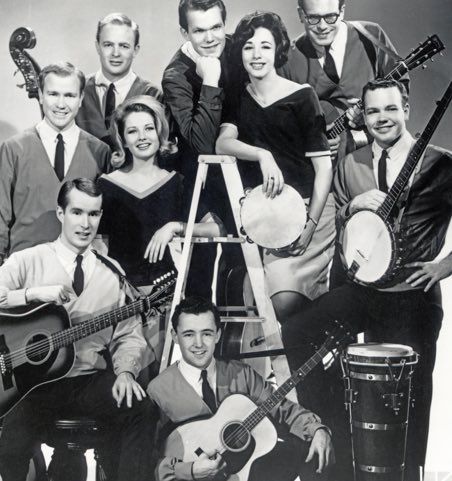Judy Collins
Judy Collins claims Colorado as her home state, as her family moved from Seattle to Denver in 1949, when she was 10. Her father was a singer, composer and broadcasting personality, and she appeared as a youngster on his KOA radio program, Chuck Collins Calling. Shortly after arriving in Colorado, Collins began the study of classical piano with Dr. Antonia Brico, a conductor and pianist who devoted her life to fighting prejudice against women in the orchestral world, and she debuted with the Denver Businessmen’s Orchestra when she was just a teenager.


At last count, Collins had recorded three dozen albums, produced a documentary with director Jill Godmilow about Dr. Brico’s life titled Antonia: A Portrait of the Woman (which earned an Academy Award nomination), written several autobiographical books and a novel, and received numerous humanitarian awards for her work with UNICEF and alcohol-abuse and suicide-prevention programs. She continues to record and perform music worldwide.
Collins had gained her social conscience and the special gift of turning folk songs into art songs.
Her crisp, clear soprano voice electrified audiences, carrying her to New York’s Greenwich Village and on to international fame. Her first album, A Maid of Constant Sorrow, was released in 1961 several months prior to Bob Dylan’s debut record. Collins stayed mainly with readings of traditional material on her early recordings, but she transitioned to singing the music of her contemporaries, bringing a wider audience to Joni Mitchell (“Both Sides Now” was Collins’s first commercial hit, in 1967), Leonard Cohen and Randy Newman. She also became the foremost American interpreter of the French composer Jacques Brel and began to write her own songs. At the close of the 1960s, Collins scored another hit single with Ian Tyson’s “Someday Soon,” singing about a cowboy from Colorado, and Stephen Stills wrote the Crosby, Stills & Nash classic “Suite: Judy Blue Eyes” about her. Collins enjoyed more commercial success with the 1975 Grammy Award winner “Send in the Clowns,” from the Broadway play A Little Night Music, and an a cappella cover of “Amazing Grace.”
Chris Daniels
A Minnesota teen inspired by folk music and acoustic blues, Chris Daniels settled in Colorado in 1971. He joined Magic Music, one of the first acoustic jam bands, and the act performed at the second and third Telluride Bluegrass Festivals in 1975 and 1976, held its own in local clubs and was often booked at Boulder’s Good Earth with the funky Freddi-Henchi Band.


In large radio markets, they made a dent on the new “adult album alternative” format. Forty years after inception, Chris Daniels & the Kings have produced a dozen albums, toured Europe twenty times and remained a top local concert draw.
Daniels also played a hefty role in shaping the Colorado music scene. He spent five years as executive director of the Swallow Hill Music Association, during which the roots, folk and acoustic music school and concert organization won both the Governor’s Award and the Mayor’s Award for Excellence in the Arts. He began teaching at Arapahoe Community College in 2002 and became an assistant professor for music business at the University of Colorado Denver in 2007, winning the 2011 award for Excellence in Teaching from its College of Arts & Media. His 2012 release, Better Days, marked a return to his folk roots and found its way onto the national Americana radio chart.
Bob Lind
While not a Colorado native, Bob Lind called the state home. He graduated from high school in Aurora and enrolled at Western State College in Gunnison, where he focused on playing guitar to the exclusion of academics. He dropped out circa 1964 and moved to Denver, where he became immersed in the folk music scene and took coffeehouses such as the Exodus, the Green Spider and especially the Analyst by storm.

“Elusive Butterfly” was Lind’s only Top 40 hit. Out of his own pocket, he had recorded an acoustic demo tape during his Denver days at Band Box studios; Verve Folkways Records overdubbed new accompaniment without his input and released it as The Elusive Bob Lind. Follow-up singles charted on Denver’s KIMN radio but barely cracked the national charts.
During the 1970s, Lind began easing out of the music business, concentrating on writing screenplays, novels, plays and short stories. Over the years, more than 200 artists recorded his songs. In 2004, he resumed performing worldwide, and his 2012 album, Finding You Again, has been hailed by some critics as his best work ever.
Serendipity Singers
The folk boom of the early 1960s spawned numerous purveyors of well-scrubbed folk pop, and one of the most popular ensembles to emerge was the Serendipity Singers, founded at the University of Colorado. Bryan Sennett and Brooks Hatch worked in the Harlin Trio, organized at the Delta Tau Delta house.


The ensemble, then called the Newport Singers, proved popular through stage performances and radio commercials.
The group moved to New York in the spring of 1963, hoping to land a recording contract. Expanding again with the addition of Texas-born folksingers Diane Decker and Tommy Tiemann, the nonet performed at the Bitter End, one of the top clubs in Greenwich Village, and gained the management expertise of its owner, Fred Weintraub. Billing themselves as the Serendipity Singers, they passed an audition to alternate as the headline act on Hootenanny, the weekly ABC TV folk-music showcase taped at different college campuses.
Signing with Philips Records, the Serendipity Singers reached No. 6 on the Billboard Hot 100 with “Don’t Let the Rain Come Down (Crooked Little Man),” and the song was nominated at the 7th Grammy Awards in 1965 for Best Performance by a Chorus.
The follow-up, “Beans in My Ears,” hit #30 a few months later, though a few radio markets banned it because some teenagers took the song literally. Charting albums were The Serendipity Singers (No. 11 in March 1964), The Many Sides of the Serendipity Singers (No. 68 in June 1964) and Take Off Your Shoes With the Serendipity Singers (No. 149 in January 1965). The group appeared on such network television shows as The Ed Sullivan Show, The Dean Martin Show, The Tonight Show, Shindig! and Hullabaloo.
The Serendipity Singers’ upbeat, massed vocal sound broke on the charts just as the continued impact of the Beatles and the British Invasion was about to sweep the music landscape. New member Patti Davis succeeded Lynne Weintraub, and the group performed at the White House, with President Lyndon B. Johnson in attendance. The group shed its last original members by 1970; the name was sold, and the Serendipity Singers continued with new lineups as a concert attraction into the 1990s.
Do you love and appreciate the history of music? Head over to the Colorado Music Hall of Fame, where you get to learn and enjoy the rich history of music in Colorado.
